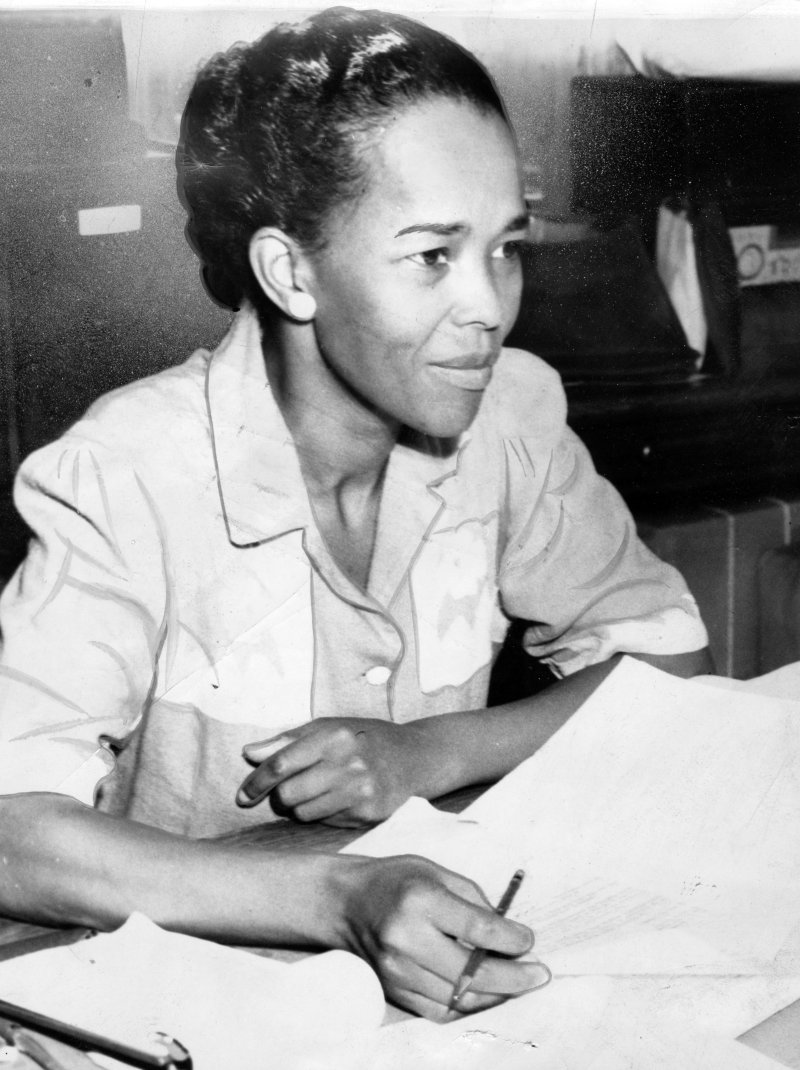Ella Baker is one of the unsung heroines of the civil rights movement who inspired and guided emerging leaders like Rosa Parks. She has been described as the mother of the Civil Rights Movement.
Without Baker,
Baker played a key role in some of the most influential organizations of the time, including the National Association or the Advancement of Colored People (NAACP), King’s Southern Christian Leadership Conference (SCLC), and the Student Nonviolent Coordinating Committee (SNCC).

In fact, according to a report by Digital SNCC Gateway, there would not have been an SNCC without Baker. While serving as Executive Secretary for the SCLC, she organized the founding conference of SNCC, held at Shaw University in Raleigh, North Carolina during the Easter weekend of 1960.
Miss Baker, as the students usually called her, persuaded King to put up the $800 needed to hold the conference. King hoped they would become an SCLC student wing but Baker encouraged the students to think about forming their own organization.
This led to the SNCC, which she encouraged to organize from the bottom up.
Recognizing their potentials, Baker urged student activists behind the SNCC to promote “group-centered leaders” rather than the “leader-centered” style she associated with King’s SCLC.
“You see, I think that to be very honest, the movement made Martin rather than Martin making the movement. This is not a discredit to him. This is, to me, as it should be” Baker said in June 1968.
Baker, whose grandparents were slaves, was born in Norfolk, Virginia, on December 13, 1903. She must have gotten the activist spirit from her mother, a member of the local missionary association, who called on women to act as agents of social change in their communities.
She graduated valedictorian from Raleigh’s Shaw University in 1927. According to Time, Baker “spent the 1940s traveling from small town to small town, convincing ordinary black citizens—who had been enslaved and terrorized for more than 200 years—to join together and peaceably insist that they were deserving of basic human rights.”
Described as strong-willed with a gift for listening, Baker worked with local leaders in campaigns against lynching, for job training and for black teachers to get equal pay.

The civil rights leader also served as a consultant to the Southern Conference Education Fund throughout the mid-1960s and helped organize the Mississippi Freedom Democratic Party.
Baker left SCLC in August 1960 but remained active in the civil rights struggle until her death in 1986.
Her life and accomplishments were chronicled in the 1981 documentary “Fundi: The Story of Ella Baker. “Fundi” was her nickname, from a Swahili word that means a person who passes down a craft to the next generation.
Her legacy lives on through the Ella Baker Center for Human Rights, which aims to tackle the problems of mass incarceration and strengthen communities for minorities and low-income people. A K-8 public school on Manhattan’s Upper East Side is also named after her.
“The major job was getting people to understand that they had something within their power that they could use, and it could only be used if they understood what was happening and how group action could counter-violence…”, Baker once said.










